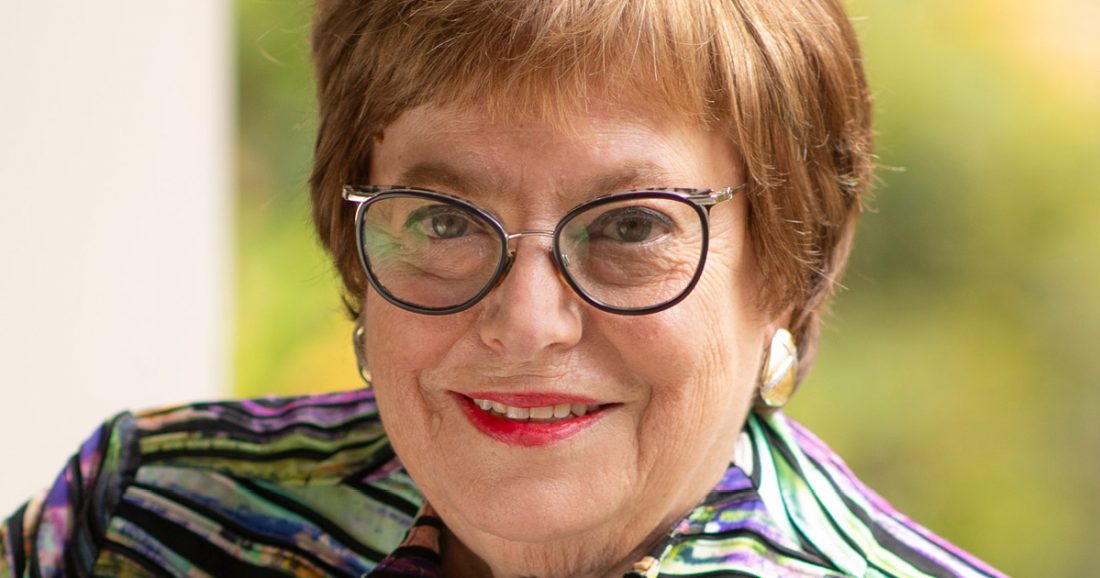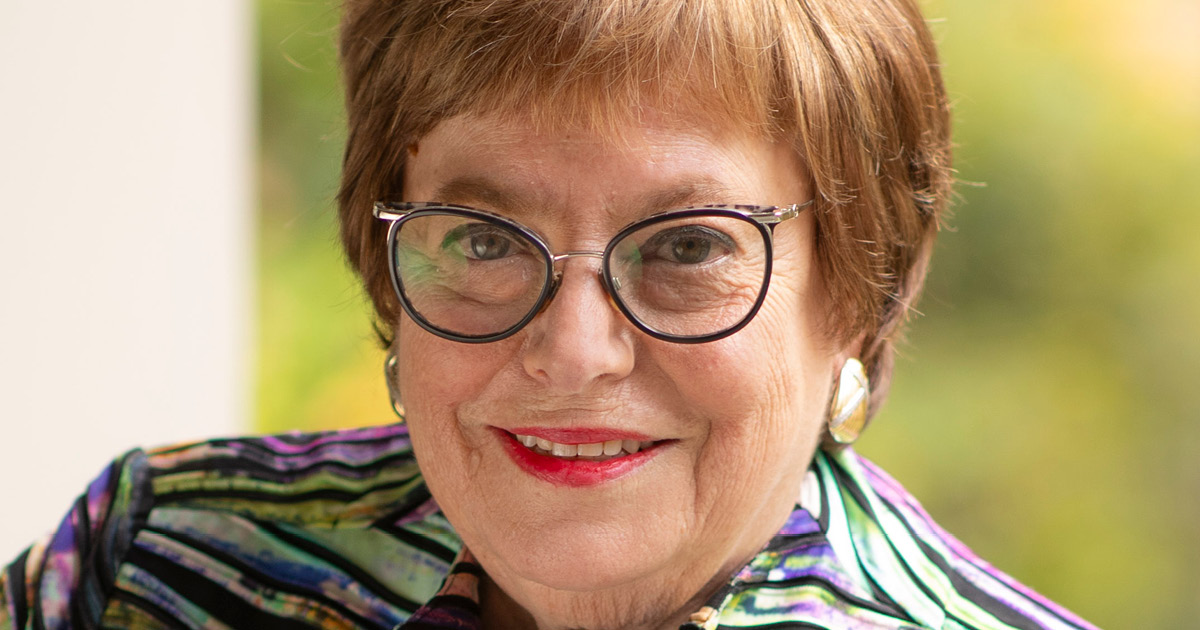For APCO Worldwide Founder and Executive Chairman Margery Kraus, it has never been about the company. “It has always been about what we do for the clients,” she tells The CEO Magazine. “We’ve always concentrated on keeping our standards high.”
Kraus knows APCO may not have the brand recognition of other giants in the global advisory and advocacy space. Yet for those in the know, the Washington, D.C. headquartered company is the name to call when you can’t afford to fail.
“Right from the start, when there were 10 of us in a room, that has always been our bold, airy aspiration,” she says with a laugh.
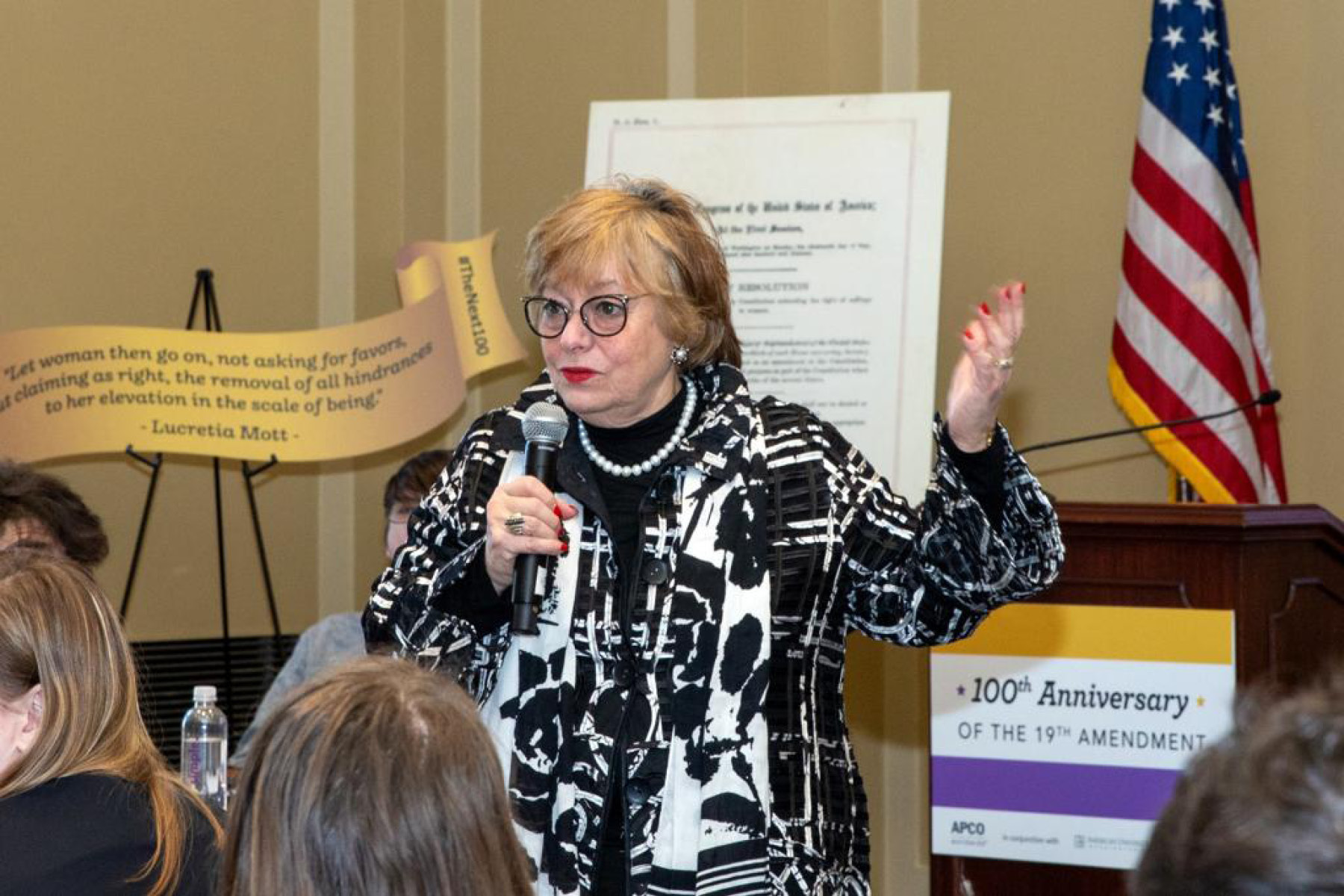
“Companies trust us to help them work through all the different issues in this messy world. That’s our secret sauce.”
Over the years, clients have included countries and governments (Croatia, the Government of Sharjah, the Ukrainian Ministry of Finance, among others), organizations and big businesses (Dell, IKEA, eBay and more) and project requirements have spanned everything from bankruptcy battles to papal visits.
“There’s work we’ve done that we can’t discuss, but the general measure of satisfaction is wherever we can either prevent something that would be catastrophic to a lot of people or when you can create something that you just know that nobody else could have done,” she reveals.
A pursuit of excellence, coupled with a hefty dose of integrity, continues to set APCO apart. “We are known for seeing around the corner and for having both a radar and a compass,” she explains. “The compass is more about what we’re doing on trust, on creating corporate responsibility and defining a company or an organization’s reputation.”
What’s more, Kraus and her global team continue to do so in a very crowded area in an ever-changing global climate. “Companies trust us to help them work through all the different issues in this messy world,” she says. “That’s our secret sauce.”
Just Common Sense?
APCO’s beginnings were as the consulting affiliate of law firm Arnold & Porter in 1984. For Kraus, the founding premise was a simple matter of logic.
“We started with the idea that a client needs to have the freedom if they have a problem or an opportunity to look across the spectrum and not have the solution defined by the kind of firm they went to,” she explains.
At the time, if a client needed to commission some services that would help them in its relationships with the external world, solve a problem or create an opportunity, they would almost have to decide what the area was that they wanted to focus on.
“Because whether they hired a lobbying firm, a PR agency or advertising or grassroots, for example, they were all kind of separate entities,” she says.

“Nobody was quite doing what we were doing. You would think it was common sense.”
With APCO, the aim was to have an eclectic group of people from all those backgrounds who could be both problem-solvers and opportunity creators.
“If you had a team looking at a problem or opportunity, they didn’t have to come up with a solution that was defined by what they sold. Instead, it was a solution that was bespoke to what their situation was,” she notes.
“I wanted it to be a place where we were free to come up with the most creative and best solutions for our clients; not be limited by what we sold.”
At the time, she didn’t realize what she was creating was such a big deal, but the ‘eclectic’ group of services APCO was offering had never before been bundled together.
“It turned out nobody was quite doing what we were doing,” she recalls. “You would think it was common sense.”
A ‘Glocal’ Perspective
It wasn’t long before APCO expanded internationally, with its first office in Moscow in 1989 followed by London and Brussels in 1995. Its deliberate combination of public affairs and strategic communications in the Belgian capital shook up the local scene.
“Nobody had been doing that, either. Within the first three years, we grew so fast and soon everybody was – or at least said they were – doing something similar,” she says.
“Our culture was so different, not because they were European, but because of the classic way these firms were run – there was no way we could build on the culture that we had and make it work.”
Having quickly ruled out growth through acquisition, today it has offices in over 30 countries and works in more than 80 markets.
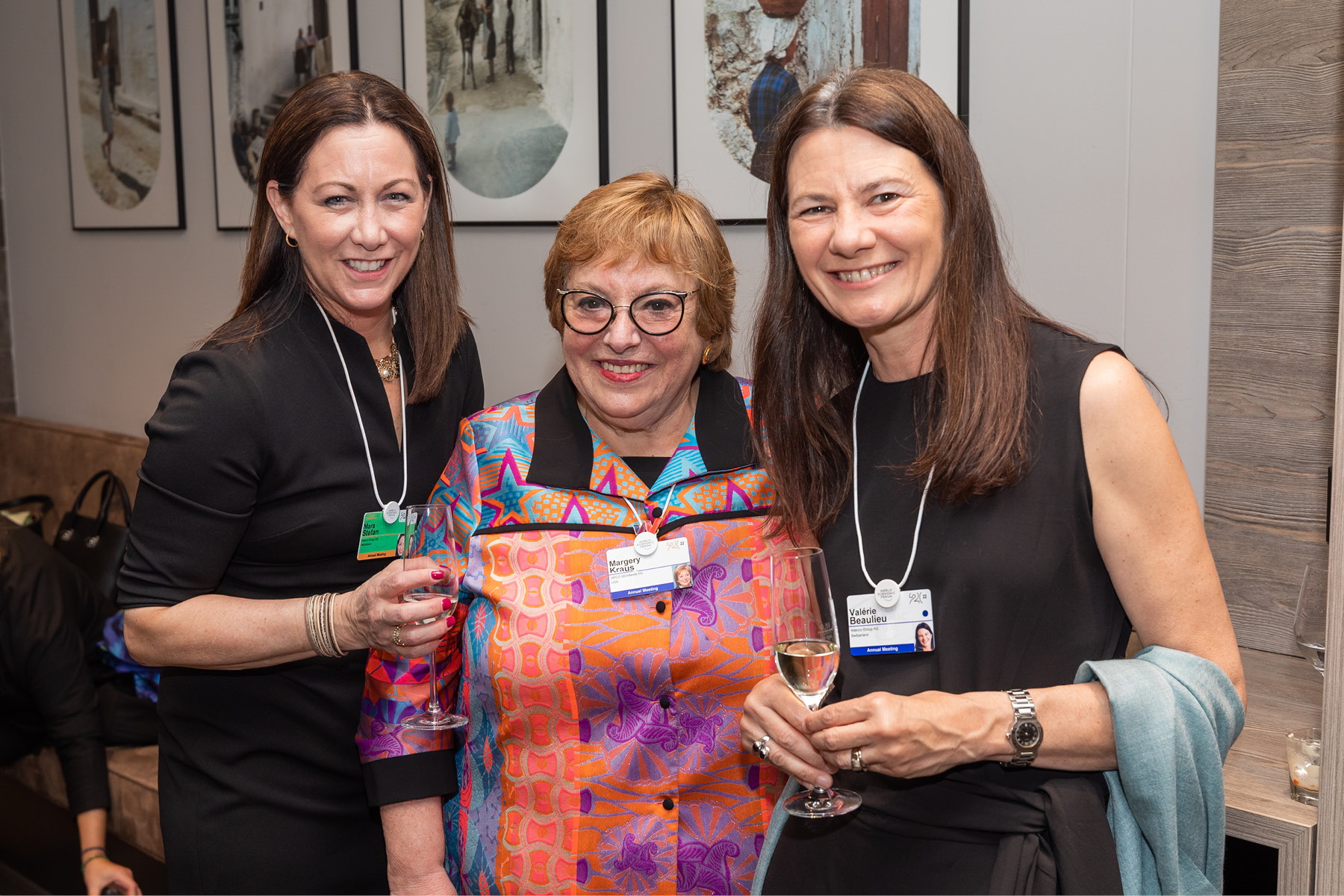
“We had people that had a global perspective, but they also had deep local knowledge.”
For Kraus, a concept of ‘glocal’ was the second premise that drove APCO from the beginning. “It’s a word that has become kind of funny within APCO because people used to tease me about it, and I’d always be explaining that it wasn’t a typo because the idea was very important,” she says with a smile.
“We had people that had a global perspective, but they also had deep local knowledge, because you can have that global perspective and not be successful locally, or you can be successful locally and it doesn’t fit into an organization where you understand the nuances of speaking with one voice.”
So she has always prioritized hiring like-minded people on the ground. At the start, that meant people who were willing to take a risk, as few people were familiar with APCO.
The first hire in Brussels was not even 30 years old. “We tended to skew to the younger generation because they weren’t wedded to the past,” she suggests. “We were integrating these services that would have been very hard to do if people were stuck in their ways of doing things.”
‘Hand-to-Mouth’ Growth
Despite the speed at which growth came, it was, she says, hand-to-mouth growth. Finance was just one of the areas where Kraus, as a female entrepreneur in the 1980s and 1990s, found support lacking.
“For a woman to get money to do a startup in an area like this, which is so based on people, there was almost no way to get the financing you needed to build something fast,” she says. “We had to be really smart to balance our fast growth with the resources to expand, which is a very tricky thing.”
To some extent, she says, that’s still true today, although the company now has a little bit more leeway on cash flow thanks to the support of long-term partners such as Citibank.
In fact, Kraus calls the start of its relationship with Citibank in the early 2010s a tipping point, following several iterations of APCO under different ownership structures.
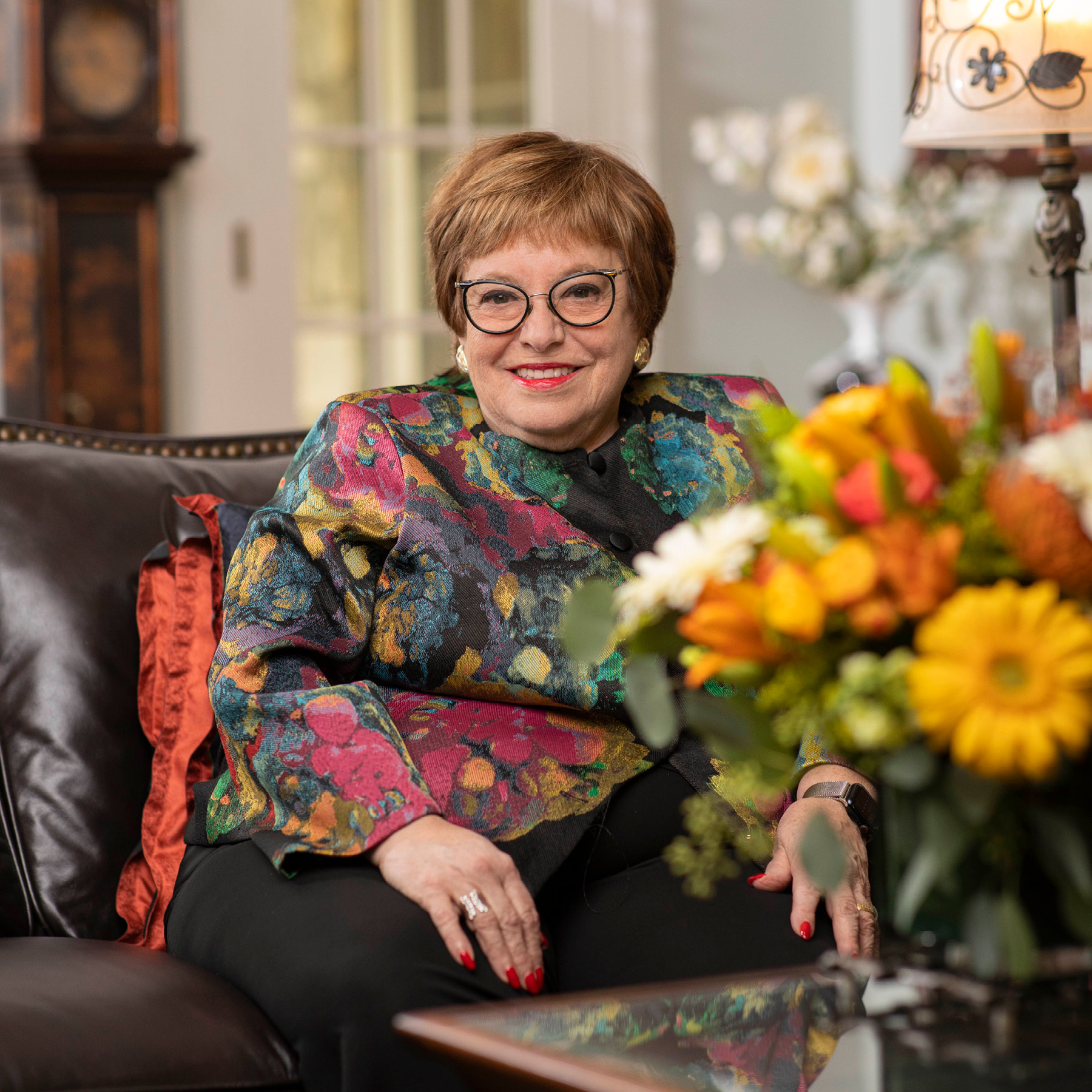
“We had to be really smart to balance our fast growth with the resources to expand.”
Seven years after its establishment, APCO was spun off from Arnold and Porter and became part of Grey Global Group. “We were a US$3 million business at the time,” Kraus explains. “When we left Grey 10 years later we were a US$50 million business.”
Along with the push of a ‘big public company’, what fueled the growth spurt was reinvestment. “We achieved that under the radar by reinvesting our own profits,” she says.
The biggest step came in 2004 when Kraus bought back Grey’s shares with the help of a private equity firm. A tough decade followed, a period that Kraus describes as “the scariest time”.
“We were totally on our own, but we didn’t necessarily have backers who backed us. They had their own way of operating. They tried to take over the firm because they thought they knew better,” she confirms.
With the assistance of Citibank, Kraus was finally able to buy the backers out, making APCO one of the largest privately-owned, and majority female-owned, businesses in the industry.
“That was the tipping point where we felt a sense of security, that we had reliable financial partners that understood our history and understood that, when things weren’t so good, we took steps and, when things got better, we invested,” she says.
Opportunity Knocks
Kraus says she didn’t grow up with a burning ambition to be a career woman – but acknowledges that she has always worked hard and dreamed big. The child of Polish immigrants, she finished school at the end of her junior year after being accepted to college early to study political science.
Before completing college, she married and shortly after, the couple welcomed their first child. To keep her mind alert she enrolled in grad school at night, when an opportunity too good to refuse presented itself: to help create the Close Up Foundation, a civic education organization that brings young people to Washington, D.C. to educate and encourage them to participate in civic affairs and government.
Kraus, who continues to have a place on the Close Up board, couldn’t say no when the next big opportunity came along to establish APCO.
“Close Up was my baby, so it took a lot to get me to make that decision,” she admits. “But at that point I was already well into my career and I thought I might as well take what I have learned to do and see if I can apply it in a whole different setting.”
She built both Close Up and APCO while raising three children and has found many of the principles that helped in her personal life have carried over to her professional life as well.
“When my kids were growing up, I had a sign in the bedroom that said there were only two lasting things of value that you give your children. One is roots and the other is wings,” she says.
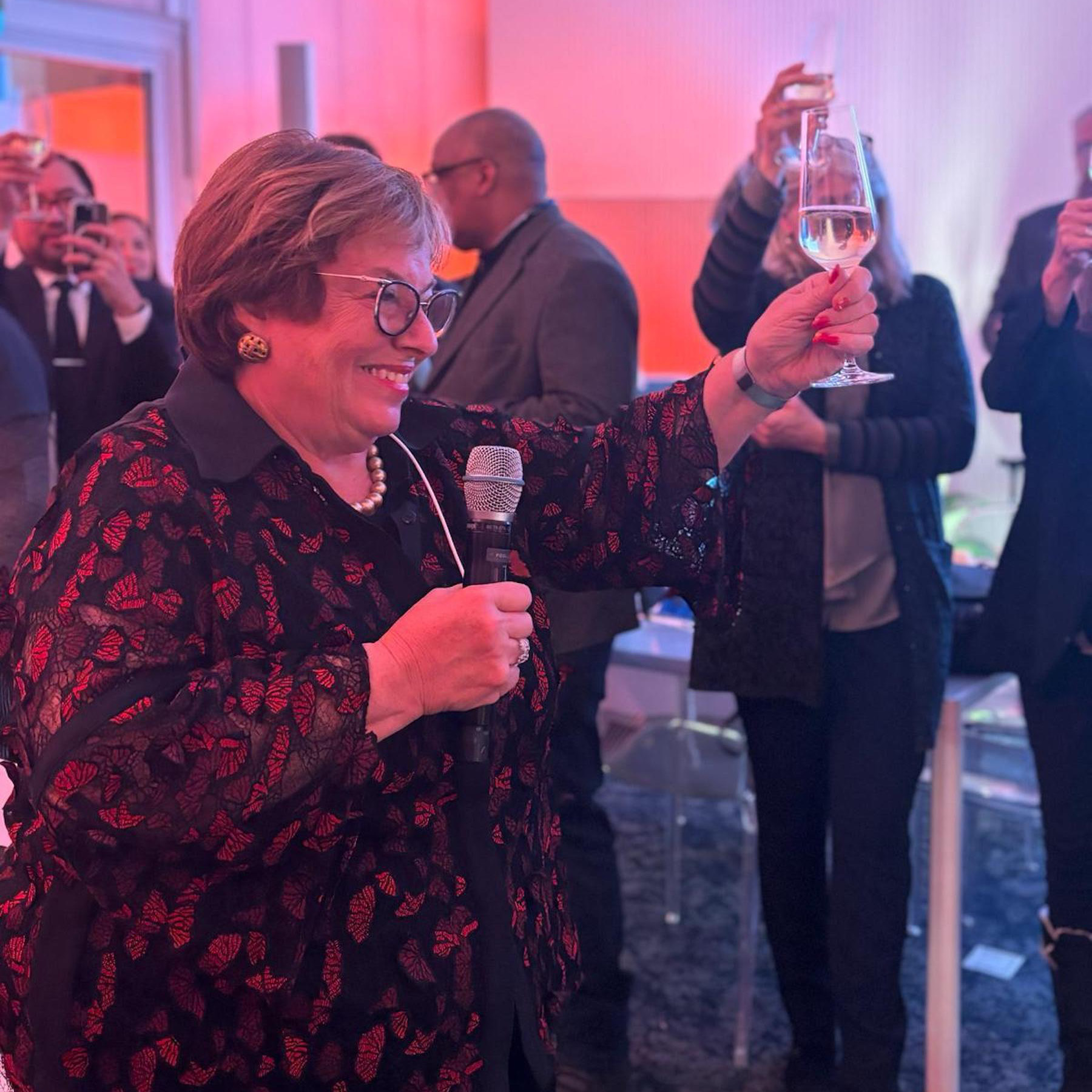
“When people started asking how I could have a company with 30 offices and one culture, I realized that subconsciously, it was roots and wings.”
“When people started asking how I could have a company with 30 offices and one culture, I realized that subconsciously, it was roots and wings as well. It was about the freedom, the wings; in the framework, the roots.”
So all-pervading has the concept of roots and wings been for Kraus that it’s the title of a book she penned in 2019 on the 10 lessons of motherhood that helped her create and run a company. “The book was a little tongue in cheek, but the whole idea of work–life integration is really important,” she stresses.
The culture of engagement and inclusion that she has promoted has created a very loyal and smart group of people, she reveals.
“The humanity of APCO is very important,” she adds. “I think I’ve been the enabler of a great culture, and that culture is what has caused people to stay and to build something, build a career.”
In return, her loyal team has helped APCO become what it is today. “I could never have built APCO if we didn’t have, as a foundation, the consistency of some very good people over time adding their knowledge, their time and their treasure to what we were building. That’s been a big part of the success.”
Shooting for the Moon
“I believe in moon shots,” Kraus says. ”Every couple of years, you have to come out with something that nobody else is doing.”
The first innovation was the integration of services that the company was founded upon. “Then in the mid-90s, it was bringing the internet into everything we did and being able to harness it to work smarter, better, faster,” she recalls.
In late 2023, APCO launched its latest moon shot, an AI support system for its clients called Margy, a name inspired by Kraus herself. The AI-powered team member will offer real-time insights, trend forecasting, content generations and other skills to APCO’s clients, by merging adaptive intelligence with the wisdom of the APCO team.
A Bright Future
At 77, Kraus shows no sign of slowing down, although she did step down as CEO in 2015, handing over the reins to Brad Staples, who has been with the firm since 1996.
At the same time, she resolved to not cash out of the business. “I’m the majority shareholder and, even though we have a lot of employee shareholders, it would have destroyed the finances of the firm,” she reflects. “I had to send a very clear signal to the people of APCO that this is for the long run.”
The period was, she says, a crossroads of sorts. But now that’s behind them, Kraus says that she dedicates the rest of her time in the business to innovation. “I want to keep us moving with the kind of entrepreneurial spirit we’ve had in the past,” she explains.
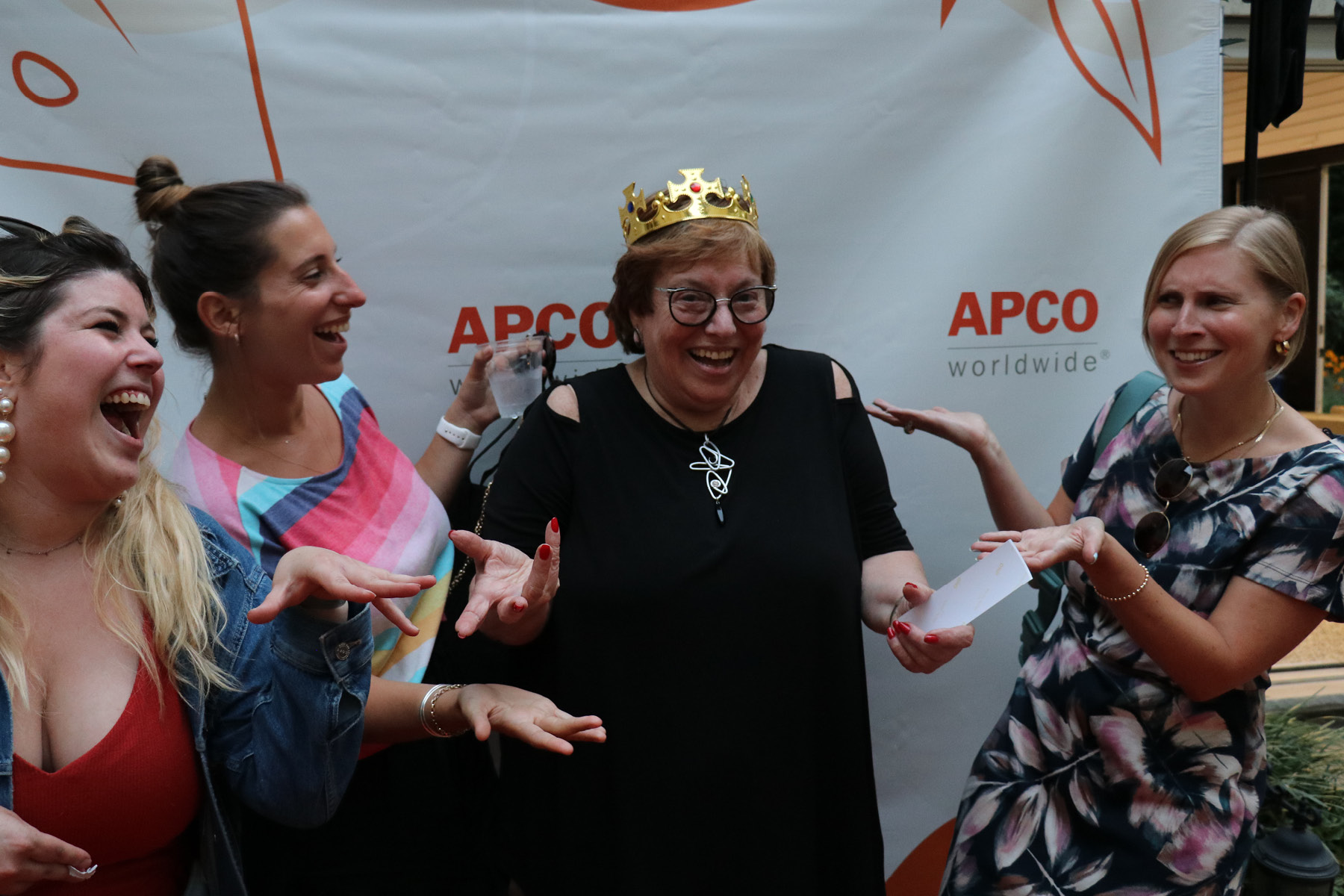
“I want to keep us moving with the kind of entrepreneurial spirit we’ve had in the past.”
And she sees nothing but a very bright future for APCO going forward. “There are a lot of people who are really great leaders who have a real commitment to the firm and its sustainability over time, who work very hard and share the core beliefs of the company,” Kraus says.
One of those core beliefs is modesty. “We’re not as well-known as we could or should be,” she admits.
Yet as APCO celebrates its 40th year in business, Kraus also knows it’s time to let some of the light shine on everything she, and her business, has achieved.
“Maybe the 40th birthday is a chance to finally say, ‘I think we’ll be around for a while, and we’ve done some really great things and we can help you, too.’”
Entrepreneurial Champion
Kraus says some of the lessons she would pass onto her younger self are quicker decision-making, being surer of herself and pushing back on some things, although she admits she was “pretty stubborn”.
“You’ve got to decide who you trust for advice and counsel, but then you have to trust your own gut as well,” she points out.
She continues to champion entrepreneurial women as the Chair of the Women Presidents Organization (WPO). And while the very nature of being an entrepreneur hasn’t changed since she first started out on her own journey, she says what has changed is the support available for women.
“There’s a lot of peer support, like the WPO, but there’s also more interest from the private sector, even though women still get a very small share of the pie.”

